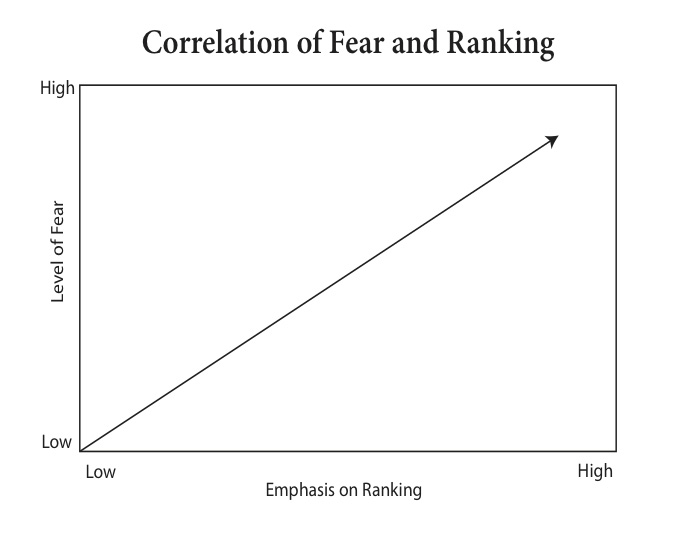A Brave Theory
- David Langford
- Business, Education, General
- 0 Comments

As a classroom teacher, I thought I was actively seeking student feedback. In hindsight, I believe I was seeking approval instead of feedback. I rarely asked for student input or a student’s assessment of a situation, but when I did, I was often frustrated or upset by the information offered. Mainly because I was already trying to do the best job I knew how to do, so feedback came across as threatening. Over time it gradually became easier not to ask than to risk hearing what I did not want to hear. After all, why should I ask for feedback unless I’m going to take action on the information?
Often when I show teachers and administrators videos of educators using quality tools, collecting data from their students and staff and then acting on the information, the common response is how “brave” the educator is for seeking feedback.
I have long contemplated what “bravery” has to do with soliciting feedback. What is at the core of these individuals appearing brave? Virtually all educators want to improve learning—only special-cause teachers or administrators will openly admit they don’t care about improving their learning environment. Yet if bravery is associated with obtaining feedback, then fear must emerge when seeking feedback. What causes this fear? Traditional performance evaluations may be one source.
Traditional evaluations of students, teachers, or administrators can be feedback for improvement, but many evaluation systems are not. Instead, evaluations are often linked to ranking of students or staff. A poor evaluation may mean a teacher is not retained or an administrator is transferred. Threat of such actions causes fear to go up. When evaluation is tied closely to ranking, fear of seeking improvement feedback will rise. The “brave theory” correlation between fear and ranking is depicted in the unscientific graph below.

One of Dr. Deming’s points was: Drive Out Fear (Deming 1982). When fear rises the human brain tends to downshift (Caine 1994) to lower levels of thinking and acting. Cortisol stress levels can rise with fear situations, and cortisol can have a caustic affect on neuron connections (Wilson 2010). At the very moment you need a creative solution, your brain is paralyzed with fear. I have seen teachers burst into tears during an evaluation session with administrators. To prevent this from happening, think about how fear can be reduced or eliminated in your system of feedback. Following are a few suggestions to consider:
A Brave Theory
Use the term feedback instead of evaluation. Using the term feedback can lower fear. Over time, I have learned to ask, “Do you want some feedback?” instead of, “Do you want me to evaluate that situation?” An evaluation request produces immediate hesitation and can lead to a “No” response. However, a feedback request usually results in a “Yes” response. Fear levels drop and people are more accepting of comments.
Try to separate evaluation from feedback. Evaluations may be required, but recognize that performance evaluations rarely result in useful improvement ideas. Evaluations of students usually mean tests. Very little—if any—learning results from a test. Learning connections are formed in the process of learning leading up to the test. If students believe test results will be used for ranking, fear will enter, downshifting to some degree will occur and scores will be lower. If students view a test as feedback as to what to do next, fear will be lowered.
Recognize evaluations usually come from superiors and useful feedback comes from colleagues and subordinates. Evaluations are usually mandated by the system. Feedback needs to be solicited. Start asking people you respect, “Will you give me some feedback on this?”
Use Quality Tools to moderate the face-to-face tension of evaluation. By using Quality Tools, you can collect systemic data that is often non-attributal, letting people be more truthful.
Be brave. Reduce the emphasis on evaluation as a method to improve. Create continual feedback loops. Recognize that feedback can make things better for everyone. Remember, people probably like you as an individual. They may not like the system you have created. Lower your fear level by learning to accept and act on feedback and lower the fear level of others by offering feedback by way of permission.









